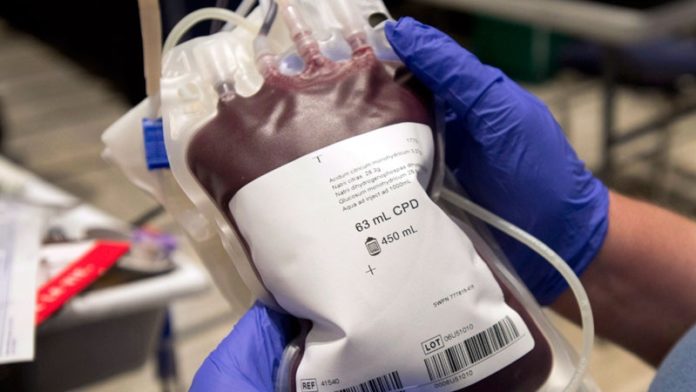
HALIFAX –
A policy that’s been deeply offensive to the LGBTQ+ community for generations may finally be falling to the wayside, but advocates say much more will be needed to rebuild trust.
More than six years after the prime minister promised to end the ban on gay and bisexual men donating blood, Canadian Blood Services is set to recommend just that to Health Canada within weeks.
“The upcoming submission is the next step in the process we began nearly a decade ago to make participation in Canada’s Lifeline as inclusive as possible without compromising the safety of biological products or the security of supply,” said Catherine Lewis, a spokesperson for CBS said in an email to CTV News.
“This change would allow us to stop asking men if they’ve had sex with another man and instead focus on high-risk sexual behaviour among all donors. It would also remove the need to ask about lower gender-affirming surgery among our trans donors.”
The policy is largely a holdover from the AIDS scare of the 1980s.
Canada introduced a lifetime ban for gay men in 1992.
In 2013, it allowed blood to be accepted from those who abstained from sex for at least five years.
It later dropped to a year, and then three months in 2019.
While declining an on-camera interview today, Lewis said “we now have more evidence than ever before indicating the change we are proposing will not compromise the safety or adequacy of the blood supply, including risk modeling for the residual risk of HIV completed with a modeling approach that has accurately predicted the risk of previous policy changes.”
“Since the last change to the eligibility criteria for men who have sex with men, two years of post-implementation monitoring has shown no change in rates of HIV risk and no challenges with accurate reporting by donors.
“The risk is extremely low and has not increased with progressive criteria changes.
“Canada continues to have one of the safest blood systems in the world.
Since Canadian Blood Services began managing Canada’s blood system in 1998 for all provinces and territories except Quebec, there has not been a single transfusion-transmitted infection from either hepatitis C or HIV,” Lewis said.
Activists say all of this is long overdue, and CBS will have its work cut out for it is it hopes to eventually win back scores of people who’ve felt discriminated against over the years.
A multi-pronged strategy will likely be needed.
“I think it does take an apology,” said Adam Reid, executive director of Halifax Pride.
“I think it takes a lot of outreach and rebuilding trust. It’s clear that, unlike HIV, this policy discriminated.”
“I really hope that, any change they make to the policy will be accompanied by a really robust plan to make amends,” he said.
Beyond and apology and some outreach, others say the change provides an opportunity for some housecleaning.
“You know, honestly, what I think is there needs to be new leadership to take Canadian Blood Services forward into a new direction,” said OmiSoore Dryden, an associate professor at Dalhousie’s Department of Community Health and Epidemiology.
“So the person who started in 1998 can’t take them forward from 2021.”
Dryden, whose research specialties include blood donation systems and HIV and AIDS, says there’s been enough evidence to drop the ban for years.
“I’m one of the researchers who received funding from Canadian Blood Services to study this. Mine specifically looks at the experience of black gay and bisexual men, but this information has been coming out for ten or 15 years,” she said.
“Canadian Blood Services really could have led the work on this, they could have championed this, understanding that the science they were relying on wasn’t reliable science.”
Once CBS submits its application to change the screening requirements, it will be up to Health Canada to approve it.
That process, which often involves requests for more information, could take several months to a year.
But after nearly 30 of them, that seems relatively fast.







